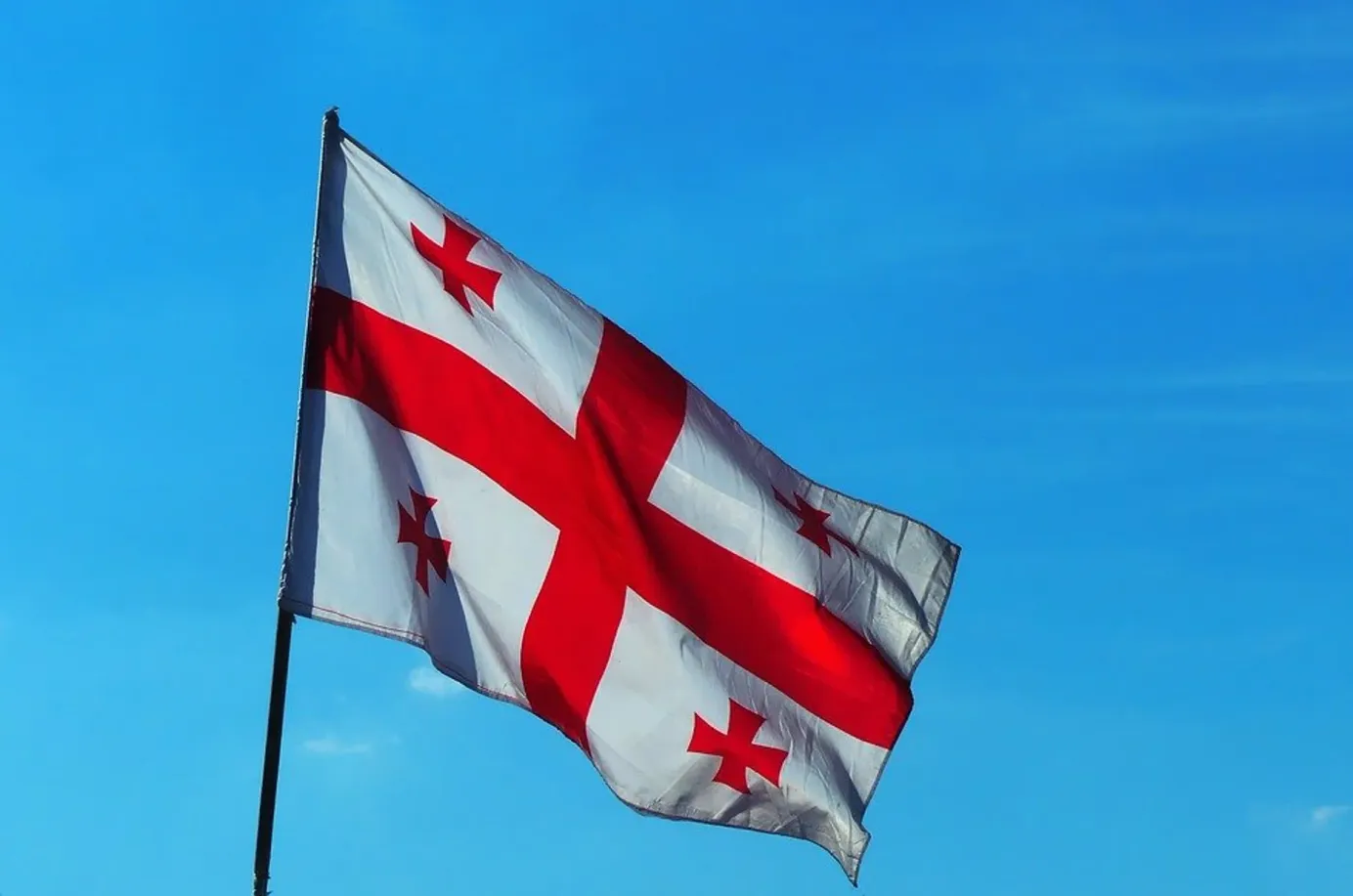
THE BELL WEEKLY: Moscow-Tbilisi detente
Hello! This week our top story is Moscow’s decision to restore visa-free access for citizens of Georgia and lift a flight ban between the two countries. We also take a look at the presidential elections in Turkey and their implications for Russia. And, finally, we sum up a new report by Russia’s Central Bank.
Georgia emerges as an unlikely Kremlin ally
The Georgian government’s long and slow drift toward improved relations with Russia has borne some fruit. Last week, President Vladimir Putin canceled visa requirements for Georgian citizens visiting Russia and lifted a flight ban between the two countries. The Georgian government likely achieved these results after refusing to impose sanctions on Russia over the war in Ukraine and prohibiting Russian opposition figures and independent journalists from entering the country.
- The first reports that Moscow and Tbilisi were considering a restoration of direct flights appeared late last year, but no one expected such a quick decision from Moscow. On May 10, Putin signed two separate decrees that canceled visa requirements for Georgian citizens visiting Russia and lifted a ban on direct flights between the countries. This is arguably Russia’s first serious attempt to improve relations with Georgia during Putin’s time in power.
- There are different background stories for the two decrees. In 2000, Russia and Georgia introduced visas for each other’s citizens, but in 2012 then-president of Georgia Mikheil Saakashvili removed visa requirements for Russians. This put the citizens of the two countries on a very unequal footing. To visit Russia, Georgians were required to go through a long, complex visa process, while Russians could stay in Georgia for up to 365 days with no visa or registration requirements – the most open travel requirements for Russians anywhere in the world.
- The flight ban also has a complicated back story. After Saakashvili came to power in 2004, whenever Russia and Georgia found themselves in a dispute, Moscow suspended flights for at least a year. This happened after the 2006 spy scandal, after the Russo-Georgian war in 2008, and finally in 2019 following anti-Russian protests in Tbilisi, which were sparked after a member of a Russian State Duma delegation to Georgia sat in the speaker’s chair of Georgia’s parliament. Flight bans hurt Georgia considerably as the number of Russian tourists visiting the country fell.
- Putin’s decrees have sparked outrage among Georgia’s pro-Western youth. Likewise, President Salome Zurabishvili (Georgia is a parliamentary republic, where the president has a ceremonial rather than executive function) described the decision as a provocation “unacceptable as long as Russia continues its aggression on Ukraine and occupies our territory.” However, opposition protests were unimpressive and could hardly be compared to the size of spring demonstrations against a proposed law on “foreign agents.”
- Georgian Dream, the current ruling party, has long been suspected of secretly holding a pro-Russia stance (an openly pro-Moscow party would have little hope of electoral success in a country that was at war with Russia just 15 years ago). The party, associated with billionaire Bidzina Ivanishvili, who made his fortune in Russia, came to power in 2012. Before the war in Ukraine, there was little reason to suspect sympathy toward the Kremlin. However, since Feb. 2022 that has changed: Georgia did not join Western countries by imposing direct sanctions on Russia, Ukraine claims Tbilisi will not offer even symbolic support against the invasion, and in March the government tried to pass a law very similar to the Russian law on “foreign agents.” Moreover, the Georgian authorities have regularly denied entry into the country to Russian independent journalists and opposition activists.
- Any Georgian government has few options other than to try to rebuild relations with Russia – and not just because Russian forces occupying South Ossetia are positioned just 100 km from Tbilisi. Even without direct air links, Russians are the second largest group of tourists in Georgia – and tourism is worth 8% of the country’s GDP and 71% of revenue from service exports. In 2022, Russia accounted for 13.1% of Georgia’s international trade, second only to Turkey.
- However, sooner or later the Georgian authorities will face the same problem as their Ukrainian counterparts. Good relations with the current Russian regime are incompatible with any real steps towards the EU and NATO, and 81% of the population supports closer ties with the West. Plus, Georgia’s constitution explicitly tasks the authorities with integrating the country with the EU and NATO.
Why the world should care
Russia is desperately seeking allies among former Soviet republics. Were it not for the war, it’s hard to imagine the Georgian authorities negotiating such significant concessions. However, Tbilisi’s long-term strategy is not clear – even in the short term, Georgia is at risk of facing secondary sanctions for cooperation with Moscow.
The Bell is now listed as “a foreign agent” in Russia: our website is blocked, we can no longer raise money through advertising, and our business model is in ruins. Journalists in Russia face greater risks than ever before. Repressive new laws threaten up to 15 years in jail for objective reporting.
However, we are not about to give up. This newsletter is our newest project. It presents an in-depth analysis of the Russian economy, which has survived the first year of the war but is becoming ever more secretive. We will try and shed some light on what’s going on. Each edition will tackle a part of the big question: how long can the Russian economy endure under sanctions and when will the Kremlin run out of money for its war?
We don’t want to have to charge a fee for our newsletters. However, if The Bell is to continue its work, we need your support.
You can make a donation here. It will help our journalists continue investigating stories, breaking news and publishing newsletters.
Russia puts hopes on an Erdogan victory in Turkey
The Kremlin’s long-time partner Recep Erdogan did better than expected in the first round of Turkey’s presidential elections this weekend. However, he couldn’t secure a third term in office outright. Now he faces another, even more difficult run-off with opposition candidate Kemal Kilicdaroglu in the second round of voting at the end of this month. The Russian authorities are counting on Erdogan’s victory since Kilicdaroglu’s pro-Western stance promises to make it harder to sidestep sanctions with Turkey’s help.
- Most opinion polls before election day pointed to a majority for Kilicdaroglu. But during the first round of voting on May 14 Erdogan exceeded expectations and almost claimed an outright victory. In total, Erdogan took 49.35% of the votes, with Kilicdaroglu receiving 45%. A third candidate, Sinan Ogan, received 5.22% and has already urged his supporters to vote for Kilicdaroglu in the next round. This, of course, does not necessarily mean that Kilicdaroglu can count on all of those votes, but it does suggest that the run-off will be every bit as tight as the first round.
- Despite clear sympathy for Erdogan, Russian state media was fairly impartial in its coverage. In the May 14 edition of Russian TV’s Vesti Nedeli weekly review, Dmitry Kiselyov described Kilicdaroglu as a “strong opposition candidate” and suggested that a third term for Erdogan would be “too anti-democratic for Turkey.” However, in the report Kilicdaroglu was portrayed as a Western puppet: the reporter highlighted the candidate’s meeting with the U.S. ambassador and his promise to enforce sanctions against Russia. In return, the reporter claims, the West promised to pump money into Turkey’s failing economy. At the end of the report, he hinted that if Kilicdaroglu loses at the polls, he could lead his supporters onto the streets in protest, invoking the Kremlin’s favorite bogeyman of a popular uprising.
- Political propaganda channels on Russian Telegram were less even-handed (1, 2, 3). The general view seems to be that Erdogan effectively won in the first round and Kilicdaroglu has little chance in the run-off voting later this month – but his Western puppet masters are already preparing mass protests for when he loses.
Why the world should care
We wrote previously about the importance of Turkey’s elections for Russia here. Erdogan is important to Putin not only as a fellow autocrat but as a predictable economic partner: Turkey has become one of Russia’s major channels for evading sanctions, as well as a transport hub in the face of isolation from the West. If the opposition comes to power it would be a boost for Western efforts in enforcing sanctions against Russia.
Russia’s Central Bank assesses the impact of sanctions on the economy
The Central Bank issued a new macroeconomic forecast, for the first time taking full account of the consequences of the war in Ukraine. The regulator sees no risk of catastrophe in the coming two years, but at the same time doesn’t see reason for optimism.
- The Central Bank’s monetary policy report published last week is noteworthy as the first detailed account of Russia’s economic transformations in the face of the war and sanctions, as well as changes to logistics and foreign trade, newspaper Kommersant wrote.
- Media outlets focused on the improved GDP forecast for 2023 (up to 0.5-2% growth, from a previous range of -1% to +1%). However, Kommersant notes that this is not the most important figure. Above all, the enforced restructuring of Russia’s economy means that growth rates are significantly lower than they would have been. In 2022, the utilization of industrial capacity was the basis for economic growth, whereas in 2023 it has so far been consumer demand. From 2024 onwards, predicts the Central Bank, investments from the previous two years will drive growth.
- The problem is that these investments were made “for survival” and a significant chunk came directly from the federal budget. The enforced nature of private investment is clear from the sectors represented among the biggest contributors: retail, construction, agriculture, and manufacturing. Private sector investments will remain at 2022 levels as sanctions make attracting foreign funds more difficult. This will have a negative impact on GDP growth, the Central Bank noted. Growth will be restricted due both to exports and falling demand.
- In general, the economy is rebuilding faster than expected, albeit with little choice in the matter. The report anticipates that the full adaptation should be complete by 2025.
Why the world should care
Central Bank reports are not aimed at a broad audience and are largely free of state propaganda talking points. Thus, they often paint a fairly objective picture of what’s going on in the Russian economy.




